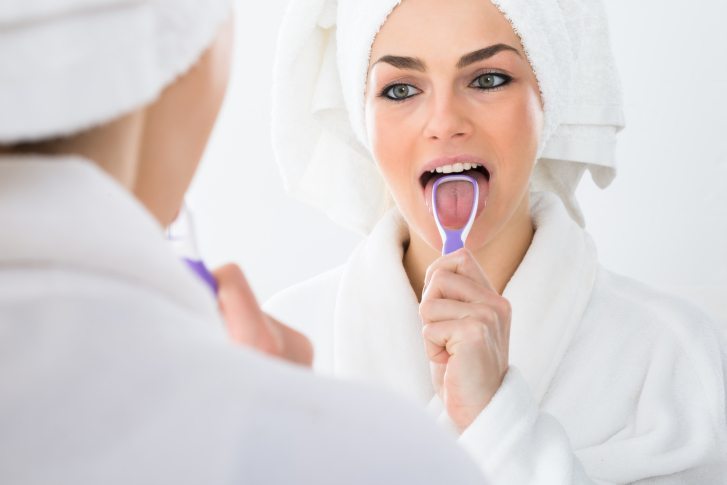8 Ways To Beat Back Bad Breath

It’s easy to improve your breath and keep your gums and teeth healthy at the same time. Dr. Lawrence, who offers dental care McKinney TX, understands that patients want to enjoy the freshest breath possible while maintaining their busy schedules. Fortunately, you don’t need to dedicate too much time to keeping your breath fresh. Just try these simple steps to make your mouth feel clean and fresh every day.
Brush and Floss More Frequently
The buildup of sticky bacteria known as plaque on the surface of your teeth causes bad breath. Food that lingers in the mouth and starts to decompose after meals also contributes to the problem. By brushing your teeth at least twice day, and flossing at least once a day, you can significantly eliminate materials from the mouth that contribute to bad breath. Just don’t go overboard in your effort to eliminate foul-smelling breath. Brushing too hard can inadvertently damage tooth enamel and increase your risk of decay.
Rinse After Eating
While brushing after every meal would be ideal for preventing bad breath, it’s not always practical to assume you’ll have the time and opportunity. Instead, try to thoroughly rinse with water following each time you eat. Not only will rinsing help rid your mouth of any lingering food particles that have stuck to the surface of your teeth, it will also help to flush any bacteria from you mouth that contributes to bad breath.
Scrape Your Tongue
An underappreciated aspect of daily oral care, scraping your tongue can help to remove bacteria that develops on the surface of your tongue. You may notice a whitish coating that occasionally covers the surface of your tongue. This film can be the host to a variety of foul smelling bacteria that can ambush your breath. Scraping removes this bacteria and improves the appearance of your tongue. Instead of using your toothbrush, consider purchasing a tongue scraper from your local grocery store. Tongue scrapers are specifically designed to remove bacteria from the tongue in ways your toothbrush cannot.
Avoid Foul Smelling Foods
While fairly obvious, it does bear repeating that you can help to prevent bad breath by avoiding the consumption of foul smelling foods like onions and garlic. Unfortunately, brushing after eating a liverwurst and pickled onion sandwich won’t do much to improve your breath. As your stomach breaks down these types of foods, they enter your bloodstream and travel to your lungs, where you breathe the foul smelling odors they create out. Better to avoid than wish you had made a better choice when standing in line at the lunch counter.
Stop Smoking
If the increased risk of cancer smoking causes wasn’t enough reason to quit, the hurtful habit also does a number on the freshness of your breath. Not only does smoking impact your breath and risk of cancer, it also increases your risk of tooth decay, gum disease and tooth loss, as well.
Chew Sugar-Free Gum After Meals
Chewing sugar-free gum after meals helps your mouth naturally produce more saliva. Saliva acts as the body’s natural defense against bacteria that causes tooth decay and contributes to bad breath. Chewing after meals also helps to scrub areas of your teeth where food can linger after meals. Just make sure the gum is sugarless, or else you can increase your risk of tooth decay instead of protecting your oral health.
Keep Your Mouth Moist
As just discussed, saliva plays an important role in protecting your long-term oral health from disease and decay. To ensure your mouth stays moist, make sure you drink enough water during the day. Drinking more water can also reduce the amount of soda and artificially sweetened beverage you consume, which will also help to protect your oral health and improve your breath.
Visit Your Cosmetic Dental Care Provider in McKinney
If despite your best effort your bad breath continues to foul up your day, make an appointment to see Dr. Lawrence and the rest of our staff at McKinney Smiles. Dr. Lawrence can examine your oral health to determine if an underlying issue may be at the root of your issue with bad breath.
